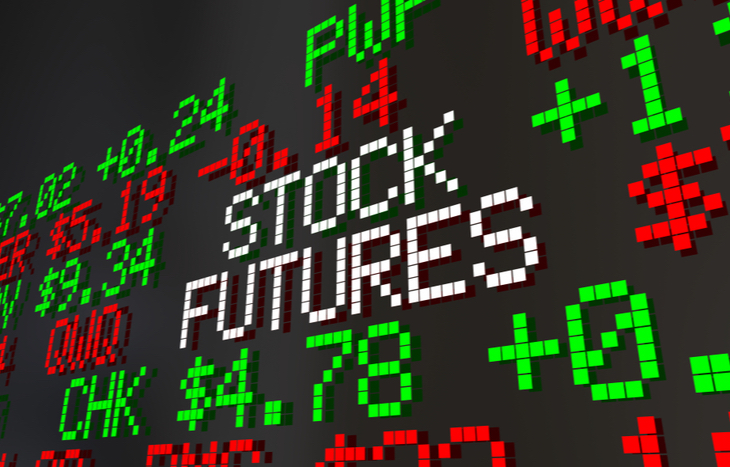What Are Stock Futures?
There are a lot of unknowns in investing. For example, you don’t know what the price of a stock will be tomorrow. If you did, investing would be a risk-free endeavor! Instead, it’s all investors can do to identify and quantify variables that help them hypothesize what might happen in the future. This is why many investors dabble in stock futures contracts.
Stock futures are a type of derivative contract that obligates an investor to buy or sell equities in the future, at a predetermined price. Contract holders know exactly when they’re obligated to purchase stock and the price per share they’ll pay, allowing them to plan ahead for that transaction. But futures are far from a sure thing, and you still can’t predict the market. The price you define today could be far above or below what the stock trades for in the future.
Let’s take a look at the risk and reward opportunities that come with stock futures, and how investors can use these contracts to speculate, hedge and better-define trades and investment positions.

Derivative Investment Products
Stock futures are a type of forward derivative product. That means they represent a contractual obligation to act upon an underlying security. In owning a futures contract, investors own the rights to the security in question, at the price specified by the contract. And in the case of stock futures, it’s an obligation to buy or sell the stock at the set price, on a specific date. In this sense, the investor locks in their buying or selling price, in anticipation that the market will act relative to an in-the-money outcome.
An Example of a Futures Contract
Marcel believes that the S&P 500 will rise in the next three months. He places a deposit with his broker and engages in a futures contract that stipulates 100 shares of SPY three months from now, at a per-share price of $400. In three months, the price of SPY is $420. Marcel sells his contract to exit his position, settling for cash. He nets $2,000 on the futures contract, since he’s effectively selling at a $20 per-share profit.
It’s important to note that while we’re talking about stock futures here, there’s a whole market for futures across all types of assets. Commodities typically have the largest market for futures.
Stock Futures vs. Options: What’s the Difference?
If the concept of stock futures sounds a lot like stock options, it’s because they’re closely related. Not only are they both types of derivatives, they’re forward contracts that speculate on the price of an asset in a forward-looking capacity. That said, they have one chief, fundamental difference.
Whereas stock options give an investor the right to buy or sell the underlying asset, futures come with an obligation. That means investors can allow options to expire worthless if they’re out-of-the-money, whereas futures traders are on the hook for the contract no matter where the price of the underlying asset lands. As a result, there are some differentiating factors to how these contracts trade on the market.
For example, options contracts rapidly deteriorate in value the closer they get to their execution date. This is because time is a measure of volatility; the less time left, the less an investor has to risk on an options contract. Futures contracts, on the other hand, feature pre-established pricing. The contract is what it is, and its value remains relatively stable when trading in secondary markets. In the same vein, options contracts will never fall below a value of $0; however, futures contracts can.
The Pros and Cons of Futures Contracts
Stock futures come with a tremendous amount of appeal as hedging devices, since investors can specify their terms. That said, they’re not without their drawbacks. Investors interested in derivatives or seeking a way to hedge particularly risky stock plays will find futures easy to learn but complex to master.
Here’s a look at some of the core pros and cons of futures contracts, and what investors can expect as they begin to dabble in forward derivatives.
Pros of Stock Futures
- The price-per-share investors pay is defined upfront; a known variable.
- Futures are a great hedge against volatility and adverse share performance.
- Stock futures contracts are typically inexpensive, with minimal deposits.
Cons of Stock Futures
- Futures are speculative, which leaves them open to significant leveraged losses.
- Contracts used as a hedge can cancel out gains from favorable price movements.
- Futures are margin-based products, which amplifies their risk for new investors.
How to Invest in Stock Futures
At their core, stock futures (like all derivatives) are a speculative product. That said, they can also serve an important role in hedging against volatility. Because futures guarantee an asset at a fixed, predetermined price, there’s an elimination of risk that comes from quantifying an unknown variable. If you know exactly what you’re going to pay, you can play to pay it accordingly.
Investors should invest in stock futures if they’re confident in their hypothesis about the future price of an underlying commodity and have the means to buy it at the price specified by the contract. Remember, speculative trading through derivatives can be highly profitable, but it carries significant risk without proper hedging and safeguards. Stock futures aren’t a beginner product, but they’re useful for learning the ropes of derivatives.
Want more tips on how to invest in stock futures? Sign up for our investment newsletter to get the scoop on derivative strategies involving futures.





